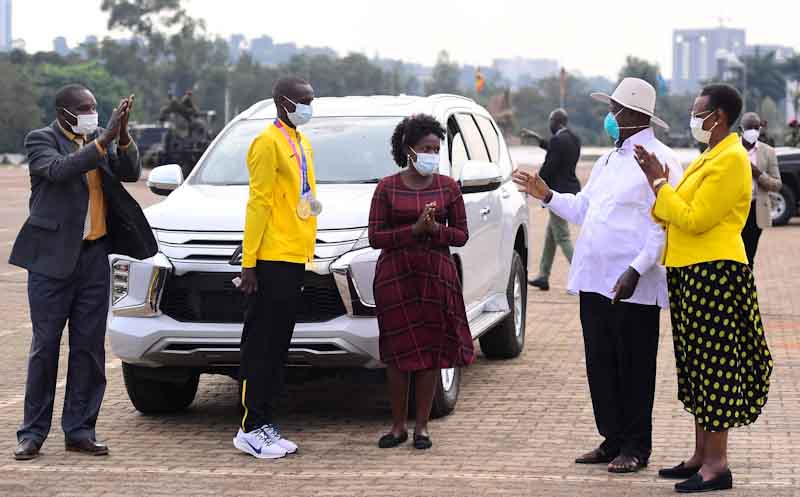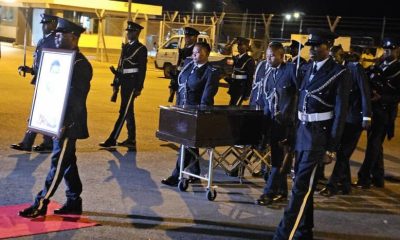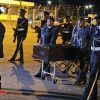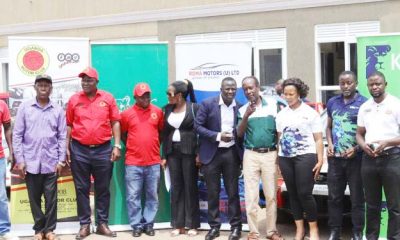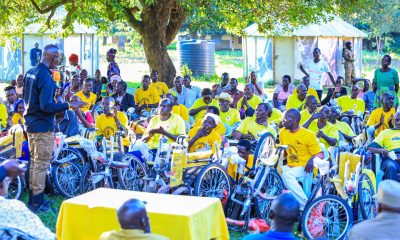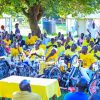News
Why rewards to Olympic champions could have been handled differently
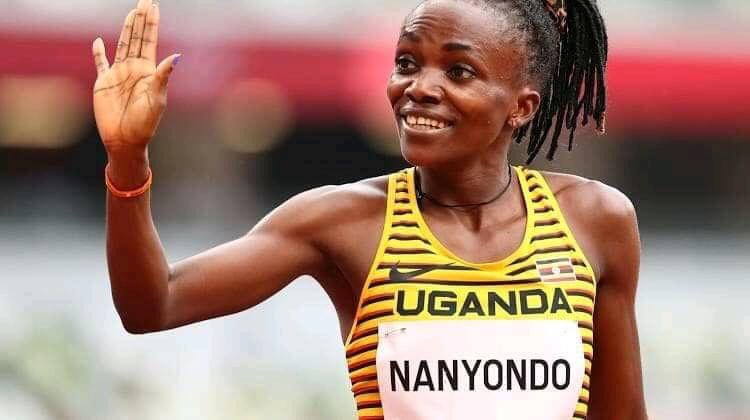
Uganda’s 800m and 1500m runner Winnie Nannyondo ably represented Uganda at the Tokyo2020 games. And despite coming slightly late, she got nothing in terms of rewards from the president. She and other members of Uganda’s Olympic team including the trainers deserve better
Uganda recorded the highest number of medals in the history of the Olympics by winning four medals (2 golds, one silver and a bronze) at the just concluded Tokyo 2020 Olympic games.
The achievement lifted the national mood and made most of people feel proud to be Ugandans. Such is the power of success in sport especially at the international level.
On Wednesday August 11, President Museveni held a televised address during which he handed out brand new Mitsubishi luxury cars to each of the medalists.
Although there has been a debate on why the President is so obsessed with car donations instead of giving the winners options such as cash or some other less burdensome prizes like a house, I believe a prize is a prize.
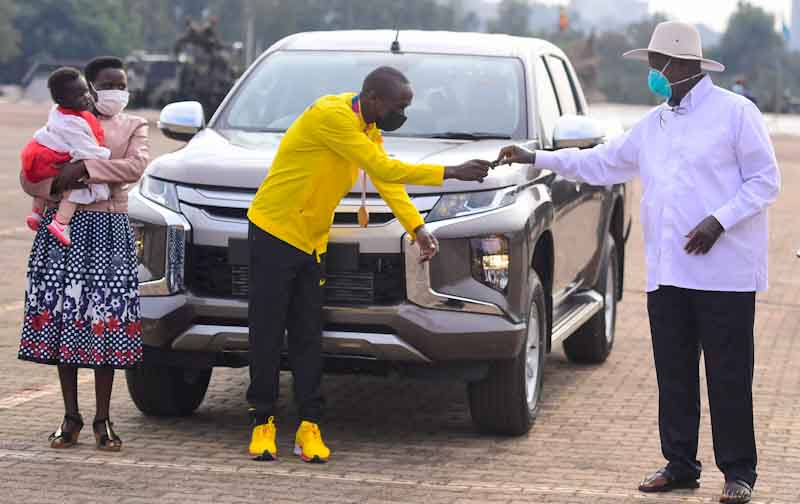
Jacob Kiplimo receiving a new Mitsubishi pickup truck. It is gratifying to reward those who excel, but it’s also sad to know that others who didn’t win but so proudly wore Uganda’s flag got nothing
My only contention is why did the president not consider rewarding other members of the Olympic team who wore the national flag with so much pride, even though they didn’t win medals?
Whereas a medal is often an individual achievement, rewards from the home country should take into consideration the ecosystem that empowers an athlete or any other competitor to excel.
The closest person one could think of is a coach or trainer for the athletes. Fellow athletes in the camp also play a huge role of cheering and morale-boosting their colleagues before and after the race.
In fact, events such as long-distance races, fellow athletes play such crucial roles as pace-setting. Those who watched the Tokyo 2020 games would for example remember how Stephen Kisa played this vital pace-setting role for his compatriots Joshua Cheptegei and Jacob Kiplimo.
Rewarding the winner alone, therefore would kill such camaraderie and partnership that helped Ugandans beat competitors from other countries.
As we also witnessed during the Tokyo 2020 games, many athletes put in their whole, enduring harsh weather conditions such as extreme heat and humidity to qualify from one stage to the next stage of the competition.
It is disingenuous to forget the sacrifices of these athletes and the fame and publicity they bring to the country by wearing the national flag.
Once would in fact say that some athletes such as Winnie Nanyondo who finished 7th in the 1500m finals for women and several others who were actually not very far away from the medals bracket, deserved a prize.
Failing to reward them, or the coaches of the medalists, and instead reward the parents of the winners, is the epitome of unfairness.
By the way, the President seems to be into the habit of rewarding only a few, even in sports such as football where teamwork is more important than individual talent and abilities.
For example, In May this year, President Museveni rewarded the Uganda Cranes Captain Dennis Masinde Onyango with a brand new Mitsubishi luxury car, after the star announced his retirement from the national side.
But we also remember that at the same time, other players including Hassan Wasswa, hang up their national jerseys after many years of dedicated service. Regardless of their disagreements with FUFA president Moses Magogo, many would agree that Wasswa and others deserved a befitting token of appreciation, which didn’t come.
So what needs to change?
It is clear that Uganda currently does not have a system for rewarding sportsmen and women who bring honour to the country at the international stage, even though, as President Museveni acknowledged, sport has been adopted by the tourism sector as a vital promotional tool on the international scene.
From President Museveni’s remarks at Namboole, where he said: “I am now a happy man, I will give each of these medalists a car and I will build for their parents a house each,” one can see
the cult-approach to rewarding sportsmen and women in Uganda – that the decision to reward anyone for an achievement or for participation totally depends on the whims of the leader.
What needs to happen is to institutionalize sports development and rewarding system through an act of Parliament that allows for input from different players. An act of Parliament imagined under the title, The Uganda Sports Development and Rewarding System Act, would not only motivate the players but also create clarity among the different competitors and support system as to what awaits them when they excel.
Having a law would also avoid such incidences as diversion of the winners’ emoluments, as has been the case where technocrats in State House refused to implement the President’s directive to pay athletes UGX5m every month.
President Museveni revealed that his people in State House chose to give the winning athletes UGX5m quarterly instead of monthly. Under a law, such deviant behavior on the part of the civil servants would be punished. A law would also take the rewards away from the whims of an individual into a well-recognized structure that supports other games, promotes patriotism as opposed to patronage.
An enabling law needs to be supported by a policy and institutional framework that supports investment bu both Ugandans and Foreigners.
In conclusion therefore, the time has come for Uganda to rise above tokenism and patronage in sport by institutionalizing the development of the industry, including a setting up a point-based rewards system for not only for those who excel but also those who advance in competitions.
This would not only be fair, it would motivate those who miss the medals to work harder the next time. Adopting such measures as soon as possible will almost guarantee success in future competitions.
Comments



